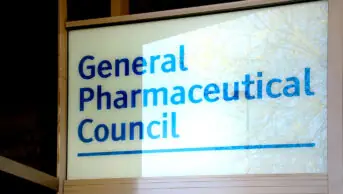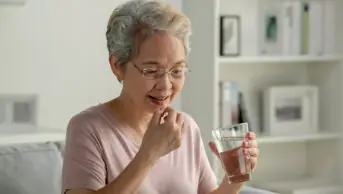
Courtesy of Pearl D’Souza
Pearl D’Souza has been working as a community pharmacist at Gatwick Airport for the past four months. She explains why working in an airport terminal is different from other pharmacy settings.
How did you decide you wanted to be a pharmacist?
My father encouraged me to follow in his footsteps as a community pharmacist because he believed that this career path would enable me to do great things. Although I found this a little intimidating, I gave pharmacy a go and have never stopped since.
I registered as a pharmacist in India and now practise in England. This has been a whirlwind of new experiences, such as learning the NHS structure, dealing with different kinds of people including patients and staff members, managing people, handling patients’ problems and safeguarding patients.
What is your current role and how did you get there?
I have worked as a pharmacist both landside (before security) and airside at Gatwick Airport since May 2016. We have to go through staff security every day when working at airside stores. For the previous six years, I had practised as a community pharmacist in a small independent chain, where I set up, managed and developed services including flu vaccinations, sexual health clinics and care home services. Additionally, I trained healthcare personnel and tutored preregistration trainees, pharmacy technicians and healthcare assistants. I was ready to take on a new challenge, which presented itself as an online job advert for a role in an unusual location.
What makes working at an airport different from other community pharmacy roles?
Emotions at the airport always run high and patients also have high expectations. A panicked traveller may arrive at 4am, saying: “I have forgotten my medicines. My flight leaves soon — could you please help me?” This is what sets the airport apart from high street pharmacies.
Prescriptions have to be dispensed at the dispensary landside (before patients go through security) because the airside stores have only over-the-counter medicines, so patients can get frustrated if there are long waiting times for prescriptions.
Additionally, a delayed or cancelled flight may mean that passengers have to retrieve their checked-in medicines and, apart from paramedics, the pharmacist is the only easily accessible healthcare professional available at the airport. My role would then be to assess the patient’s need for medication and decide if I can give them an emergency supply for the night, call the out-of-hours clinic, refer them to the local walk-in centre or ask them to retrieve their baggage.
We also offer travel clinics, including a malaria prevention service and vaccinations for yellow fever, encephalitis, diphtheria, cholera, meningitis, rabies, tetanus and polio. This is one of our most popular services — many countries require vaccination certificates for visa requirements so it is convenient to be able to access this service at the airport. There are days when we vaccinate more travellers than we do check prescriptions. Additionally, Gatwick staff rely on us for their regular prescription medicines.
Having to amend a prescription out of hours is a fight against time when a patient needs to get on a plane
What do you enjoy most about your current role?
My current job is anything but monotonous — people always have a story to tell about their holidays and travel experiences. The occasional celebrity spotting is an added bonus.
However, running the travel clinics is the most exciting part for me. I can ensure that travellers are getting the right advice instead of getting information from other sources, such as the internet. I give patients in-depth advice about travel ‘dos and don’ts’, so appointments can last over an hour.
What is the most frustrating part of your current role?
The challenge is getting a prescription from an out-of-hours doctor late at night, early in the morning or at the weekend. There is nothing more frustrating than not being able to help someone in need, especially if the patient is a child. Having to amend a prescription out of hours is a fight against time when a patient needs to get on a plane.
What’s the strangest thing that has happened to you while you were working in your current role?
In my first week on the job, working a 5am shift, a young man came to me in tears and said: “I need help — I feel mentally unstable.” Immediately, I thought I should call an emergency number and began to assess the safety of the patient, my healthcare assistant and myself.
Nervously, I decided to take him into the consultation room and asked my assistant to knock on the door every two minutes. As we settled into the room, I asked the man if he wanted to talk about it. It transpired that he had just flown back in from Berlin because his partner had ended their relationship the night before. He was very emotional and I was still concerned about his safety to himself.
I firmly but gently persuaded him to stop crying, encouraged him to think about the things in his life that make him happy and assured him that he could seek an appointment with his GP if necessary. He thanked me for listening to him. The incident made me realise the extent of my role and his appreciation meant a lot to me.
What should others considering a role in an airport pharmacy be aware of?
The shift patterns are a shock to the system. It took some time for my body clock to adjust to the hours, which are 4am–1pm or 1pm–10pm landside and 5am–1pm or 1pm–9pm airside. Shifts at the airport are not just ‘another day at the pharmacy’ — you do not know what you will be facing at any hour of day or night.
Many pharmacists are sceptical about providing emergency supplies but, particularly in an airport, patients do genuinely forget their medicines. You have to be able to think on your feet because there are no patient records to check against — there is only the patient’s word.

